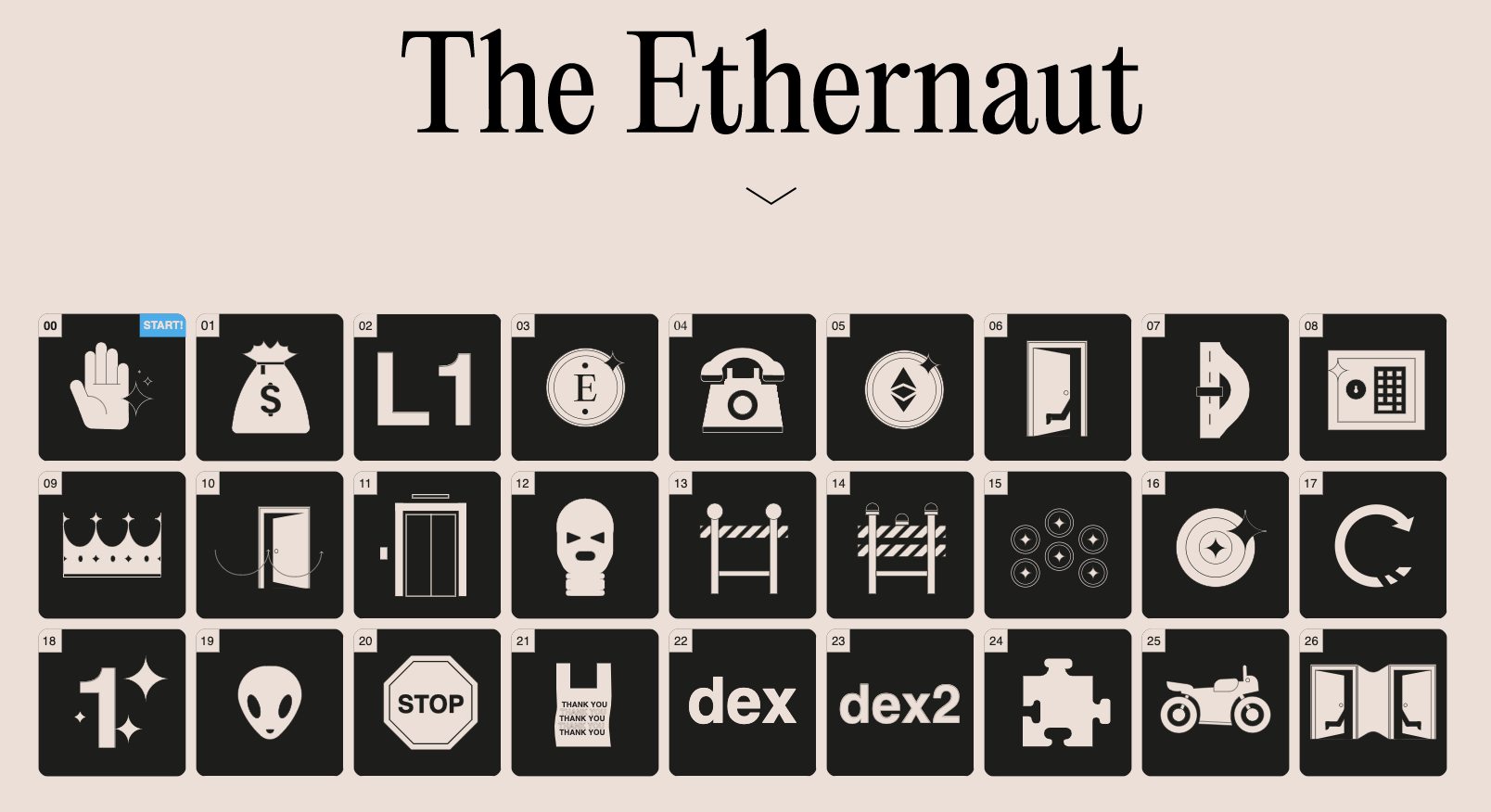Ethernaut Challenges
August 3, 2022
Please read
This is a work in progress article that will receive updates as we continue publishing detailed walkthroughs for each level.

Ethernaut is OpenZeppelin Web3/Solidity based wargame to learn about Ethereum smart contract security and become familiar with programming principles in Solidity.
Although the game was launched few years ago it has become a good place to start for those who are interested on security and smart contracts.
Challenges are currently running on the Rinkeby testnet and you will require to use a Rinkey Faucet to get free testnet ETH and test the smart contracts.
This article is my little contribution to those interested on learning the basics on Ethereum smart contract security by providing guidance and explanations on how to solve each Ethernaut challenge using brownie framework. There are different approaches and frameworks that can be used, rather than the approach you will find here, so feel free to explore and learn from others.
You can find my solutions on my GitHub repository and a technical detailed explanation for each challenge below.
Let’s go over these Ethernaut’s challenges and learn few security aspects of smart contracts written in Solidity!
Ethernaut Challenges
0x0. Hello
0x1. Fallback
The first real challenge and a simple one actually. You have to become the contract’s owner, and you can achieve this by calling the contract’s fallback function. However, you must send some Ethers first and call the contribute function once. After that, you will become the legitimate owner and you will be able to call the withdraw method to steal all the funds.
You can read a walkthrough for this challenge here.
0x2. Fallout
This vulnerability is unlikely to occur on recent versions of Solidity. The problem with this contract is a typo in the Fal1out function, which can be called by anyone, thus becoming the contract’s owner.
You can read a walkthrough for this challenge here.
0x3 Coinflip
The goal in this challenge is to guess the coin flip ten times in a row. The contract uses the previous blockhash as the flip outcome. This challenge can be solved by creating a similar contract that mimics the same coin flipping logic and calls Ethernaut’s original contract with the result obtained.
You can read a walkthrough for this challenge here.
0x4 Telephone
The idea behind this challnge is to call the changeOwner function from a smart contract. So msg.sender will be the helper contract address while tx.origin will always refers to the address who started the original transaction. Once tx.origin != msg.sender is true, you will become the contract’s new owner.
You can read a walkthrough for this challenge here.
0x5 Token
The goal in this contract is to increase our balance. Despite there is a requirement that checks for potential overflows (require(balances[msg.sender] - _vaalue >= 0);), we are dealing with unsigned integers which are known to be prone to overflow and underflow issues. To pass this challenge we will have to call the transfer method with an amount of tokens greater than 20.
You can read a walkthrough for this challenge here.
0x6 Delegation
This challenge consists of a delegation contract that forwards any calls using delegatecall in its fallback function to a Delegate contract. To complete this challenge we must get familiar with the delegatecall instruction and understand that the call performed heere is executed in the caller’s context, thus the Delegate contract will access the Delegation owner storage variable and msg.sender. To pass this challenge you simply need to call the pwn() function in th Delegation contract, despite it doesn’t exist.
You can read a walkthrough for this challenge here.
0x7 Force
The purpose of this challenge is to send ether to the contract. Sending ether to a contract requires a fallback function to be implemented, however, one can force-send ether by calling the selfdestruct instruction on a contract containing ether.
You can read a walkthrough for this challenge here.